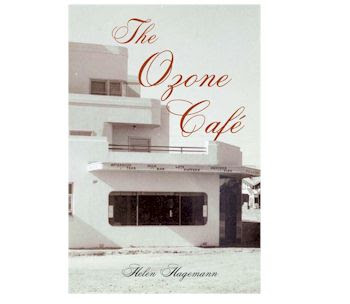Ladylike by Kate Lilley - reviewed by Helen Hagemann
Poetry is often a mixed-bag. On the one hand you have lyric poetry which stems from the Romantics to modernism, and on the other - post- modernism - a term mainly aligned by poets who philosophise that not all poets lead eccentric lives, do not embrace "form & feeling", nor are they interested in the personal pronoun "I", or the one true meaning of a text. Hence, post-modernism is meant to free up old restraints to create renewed meaning. Lyn Hejinian and J.H. Prynne (Jeremy) are two main exponents.
As a reviewer as well as a reader of poetry, I am interested in the experimental, the avant garde and a certain amount of l=a=n=g=u=a=g=e poetry. I especially like the American poets, John Ashbery for his topsy-turvy inventiveness and Brenda Hillman who breaks-up language. Kate Lilley's poetry, however, is what I have mentioned earlier - "a mixed bag". More to the point, her poetry in Ladylike appears to be all of the above, i.e. modernism, post-modernism, the lyric, with some wider references and obscurity thrown in.
Taking the first section The Double Session into consideration, and having studied Dorothy Hewett at university, I empathise with Lilley's deep binary of the mother/daughter experience. Lilley questions this association in the Forward's Fifty Minutes, "In the criss-cross of mother and daughter, student and teacher, poetry and criticism, what is mine and what is hers?" I would say many poems enmesh Hewett's story, many intersect as the mother/daughter experience. After all Dorothy Hewett was passionately ideological in her personal life as well as an intense feminist, esp. in her work (novels/poetry). My favourite novel being The Toucher.
Of course Lilley is heavily influenced by Dorothy's oeuvre, but I believe within these kinds of influences she is a poet expressing "ecriture feminine" i.e. the disruption of the phallogocentric nature of language. Lilley, however, and she has to, marks a different position of voice and style, compared to Hewett. The section title poem in "The Double Session" (as a division of two stanzas) appears to be about Lilley's parents - Dorothy and Merv Lilley, both writers. In the last few lines she states: "how it made you feel small and want to leave/ searching for the lift and then the bus-stop,/ the distant clack of typewriters in the night./ Once our work is done these tapes will be yours."
In the section Cleft, When Ladies Meet is an interesting poem that reveals the same angst for freedom and the poet's search for independence (away from Mama).
Goodbye Mama, you made me what I am
Impeccable, light-fingered little Marnie/Margaret/Peggy
You can keep the mink I stole for you
I'm young and if I go now I won't have to lose my mind
The poem, Coil, impeaches pathos no matter whose experience it is, and more so because there is a black & white photograph of the young Dorothy Hewett, the epitome of innocence?
A lilac sheath to cover you
your wardrobe of opening nights
reduced to a simple party dress
snipped curls in plain paper
your bed hacked to pieces for the skip
It is the final line that brings the emotional engagement for the reader as a universal childhood experience. However, we cannot read these two poems as the basis of the collection. The rest of the poetry in the first section highlights the narrator's search for distance and her own ‘desires’. It is in this section that conveys the complex words 'queer/lesbian'. Many of the poems in 'The Double Session' appear as a way in, getting to the heart of the matter.
In the two final sections of the book, Lilley goes far beyond my university studies and knowledge. Both sections 'Ladylike' & 'Round Vienna' have black/white pictures of women, and in the poetry I become lost. The re-reading of these poems over a long period of time may be necessary to interrogate the narrator's implications. Further reading may also help, and in this way understand how Lilley's mind works, the intertextuality, the philosophy, Freud's Dora and the 1673 Mary Carleton, along with other ideas contained in these poems. I find her sparse writing style interesting, insightful, and a poet to admire. But I just can’t engage emotionally with these sections. Lauralude is a poem from 'Ladylike'. You tell me?
Proceed haughty coquette
footling kewpie
gingham haze
Vellum umber rubbermaid
a fair sea of permanent waves
cornflower corrigenda
My review on "Ladylike" by Kate Lilley can also be read here @ http://helenhagemann.blogspot.com.au/p/reviews.html

















0 comments:
Post a Comment